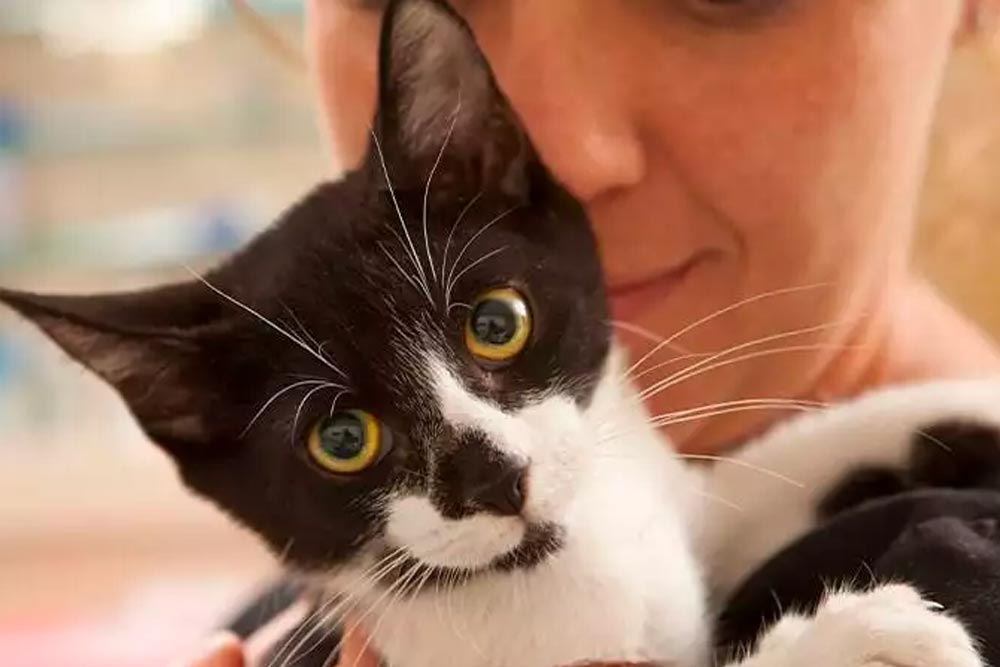Why is My Cat Vomiting in Canton, GA?
Is your cat vomiting? If so, you might find yourself worried about her. Vomiting may seem like a major cause for concern, especially if you’re unfamiliar with having pet cats, but it is actually a fairly common response in felines, even to simple problems.
If your cat has vomited once or twice and seems fine now, there is likely nothing wrong. However, if your cat continues to vomit or the vomiting has blood in it, seek immediate veterinary care by calling Riverstone Animal Hospital at (770) 479-7141.
Check out the information below to find out more about what might be causing vomiting in your cat.
Ingestion of Foreign Objects
Cats are unfortunately prone to swallowing items they shouldn’t. These may include parts of their toys that they bite or chew off, strings they find on the floor, loose buttons, and so on. If your cat swallows an item like this, it can easily cause a bowel obstruction that leads to vomiting. Cat endoscopy helps the Riverstone Animal Hospital team to see if there is an obstruction.
This is a serious condition that requires emergency veterinary care to remove the obstruction. Your cat may become very sick very quickly if this occurs, so don’t hesitate to go to the vet.
Ingestion of Toxins
Cats may also start vomiting quickly if they ingest toxic substances. Toxic substances can include chemicals and cleaners from your household; houseplants that are toxic if chewed on by a cat; human food items that are unsafe for cats to eat; medication for cats or humans; essential oils, and more.
If you think your cat has swallowed something toxic, go to the emergency vet right away. Don’t wait for symptoms of toxicity to occur. If your cat is vomiting after eating something toxic, take the toxic item to the vet with you and seek emergency veterinary care right away.
Acute Illness
Many acute cat illnesses cause vomiting, and in fact vomiting is considered one of the most common symptoms of sickness in cats. There are several types of illnesses that cats may catch easily, some of which are less serious than others. Even a cold or a bout of seasonal allergies can sometimes cause a cat to start vomiting.
If you think your cat may be sick with an acute illness, she will need to be diagnosed by your regular vet. If she is able to keep liquids down, you may be able to wait until your regular vet is available for a visit rather than rushing to the emergency vet, depending on her other symptoms.
Chronic Illness
Chronic illness can include a wide range of feline health problems. One of the most common of these is hyperthyroidism, which causes vomiting, diarrhea, and a wasting effect on cats. Cancer is another common chronic illness that sadly causes cats to vomit often.
Diabetes may sometimes also cause vomiting in cats. If your cat is very overweight or is not eating a healthy diet and has been vomiting, she may be diabetic. Diabetic cats also have excessive thirst and excessive urination, so look for these symptoms too.

Food Intolerance or Allergy
Just like humans, if a cat is intolerant of a type of food, that cat will likely vomit after eating it. Your cat may have a food intolerance or may be allergic to certain ingredients in her cat food. If you have recently adopted your cat or if you’ve just changed her food, this may be the likely cause of her vomiting.
Consider changing your cat’s food to something with higher-quality ingredients and cleaner food sources. Try changing the type of protein you feed her, as well; some cats may be allergic to chicken or fish, for example.
Hairball
Finally, your cat may not actually be vomiting at all, but might simply have a hairball. Hairballs are common in every type of cat except for those that are completely hairless, and even short-haired cats can have them. They are more common in the warm summer months when cats shed their fur but can happen at any time.
Hairballs are normal and they mean your cat’s body is working the way it should. If the vomit looks like it has a clump of fur inside it when you clean it up, then it is a hairball.
Talk with Your Riverstone Animal Hospital Vet
As you can see, there are many potential factors that contribute to vomiting in cats. Some are very benign, and others are much more serious, so it’s important to work your trusted Riverstone Animal Hospital veterinarian to figure out the underlying cause of your cat’s vomiting as soon as possible. Call (770) 479-7141 or use the online form to book an appointment!
If your cat is showing signs of dehydration, or if she has been vomiting without stopping for several hours or longer, then she needs to go to the emergency vet right away. Dehydration is extremely dangerous for cats and can lead to death in as little as a couple of days in some instances.
